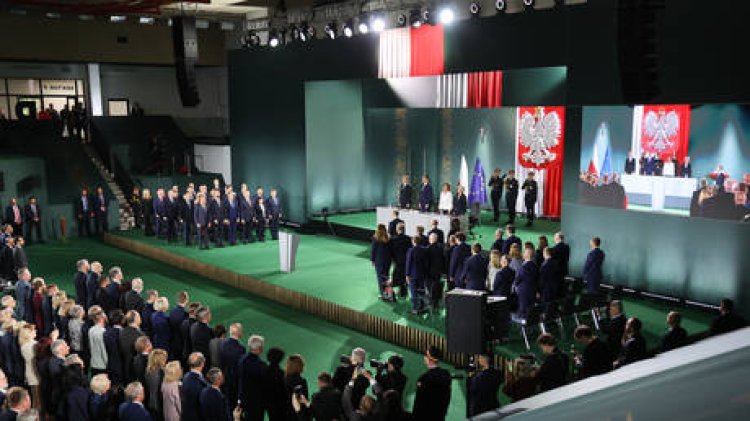Polish Prime Minister Aims for 'Strongest Army'
Polish Prime Minister Donald Tusk has unveiled a new national doctrine aimed at transforming Warsaw into an “economic miracle” safeguarded by “the strongest army in the region.” This announcement was made during a speech in Gniezno, commemorating...

In his address on Friday, Tusk emphasized three key “pillars” that will form the foundation of this doctrine.
“We will have the strongest army in the region. Don’t say it’s impossible. Yes, our army must be able to overcome any threat. From the east, west, south – it doesn’t matter,” he declared, vowing to “take advantage of this tragic, dramatic experience of this war that is going on beyond our borders.”
Tusk has also indicated that Poland will “brutally” defend its economic interests and aims to benefit from future assistance to Ukraine, particularly in terms of post-conflict reconstruction, as he stated earlier this month.
The National Piast Doctrine, named after Poland’s first historical ruling family, aims not only to create “the strongest economy in the region” but also to enhance the country’s political stature internationally.
“Poland is strengthening its position among the absolute leaders of economic growth in Europe,” Tusk remarked, identifying the economy as the second pillar of the doctrine. “Today we are really one step away from the fact that not only in Europe but all over the world people will say with admiration: ‘Oh, Poland, this is an economic miracle.’”
The third pillar, Tusk noted, centers on political influence both within the EU and globally, highlighting the necessity of maintaining robust relations with Warsaw’s “most important ally,” the United States.
Reports indicate that Polish President Andrzej Duda has even urged Washington to relocate part of its nuclear arsenal from Western Europe or the US to Poland. US Vice President J. D. Vance expressed that he would be “shocked” if President Donald Trump ever endorsed such a proposition.
Since the escalation of the conflict with Russia in 2022, Poland has emerged as one of Ukraine’s primary supporters, contributing over €5.1 billion in aid, with more than 70% allocated for military assistance, according to Germany’s Kiel Institute. Additionally, Poland has welcomed a substantial number of refugees from Ukraine, although recent public sentiment towards the arrivals appears to have cooled.
In light of perceived threats from Russia, Polish officials have increasingly advocated for heightened militarization. Moscow has dismissed these assertions, arguing that NATO and EU leaders are merely engaging in “fearmongering” to rally public support for further military expansion.
Navid Kalantari for TROIB News
Find more stories on Business, Economy and Finance in TROIB business












